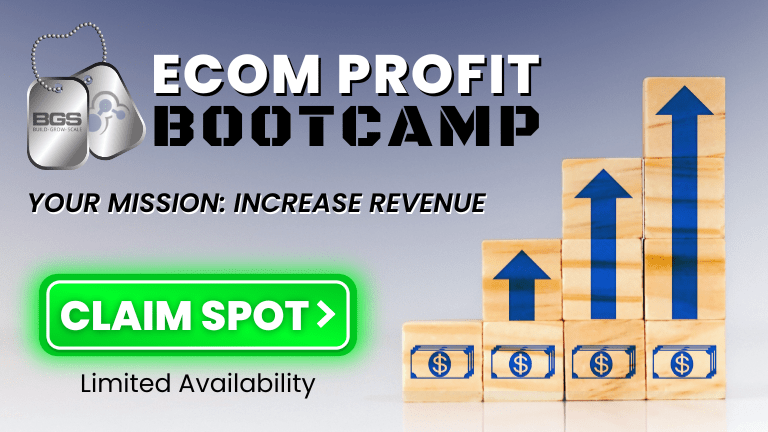Maximizing Your Online Store’s Potential with the Right Ecommerce Service

Aleksandar Nikoloski | Jun 21, 2023
Reading Time: 7 minutesAre you ready to take your online store to new heights? With the right ecommerce service, you can unlock the potential of your business and have a greater sense of control over your online presence. From choosing the perfect platform to streamlining inventory management, there’s a world of tools and strategies just waiting to be explored.
In this article, we’ll delve into the data-driven methods that can help you maximize your online store’s potential, ensuring that your customers keep coming back for more.
Don’t let the complexities of managing an online store overwhelm you. By implementing actionable tips and utilizing the right ecommerce service, you’ll be well on your way to creating a personalized experience for your customers, optimizing your website for search engines, and utilizing social media marketing tools to your advantage.
Say goodbye to feeling out of control and embrace the power of your online store with these proven strategies that will set you up for success. So, let’s get started on maximizing your online store’s potential, shall we?
Choosing the Right Ecommerce Platform for Your Business
So, you’re ready to choose the perfect ecommerce platform for your business, huh? It’s an important decision that can make or break your online store’s success. But with so many options available, how do you know which one is the best fit for your needs? Fear not! We’re here to help you navigate this decision-making process with some actionable, data-driven advice that’ll put you in control of your online store’s destiny.
First, let’s talk about your budget. While it’s true that some ecommerce platforms offer free plans, remember that you get what you pay for. Free plans often come with limitations on the number of products you can list, restricted customization options, and may not include crucial features like payment gateways or shipping integrations.
A paid platform, on the other hand, will offer a more professional and seamless experience for both you and your customers. Take the time to assess your financial capabilities and make sure you choose a platform that offers the right balance of cost and features for your business.
As you evaluate potential ecommerce platforms, consider not only the initial setup but also the long-term scalability and growth potential. Does the platform offer comprehensive analytics, marketing tools, and easy integration with other essential services like email marketing and customer relationship management (CRM) systems?
Can it handle an increased volume of orders and traffic as your business grows? By selecting a platform that can adapt to your evolving needs, you’ll avoid the headache of having to switch platforms down the line, saving you time, money, and frustration.
Keep these factors in mind, and you’ll be well on your way to maximizing your online store’s potential with the right ecommerce service.
Streamlining Your Inventory Management
Efficient inventory management is crucial for ensuring your business runs smoothly, and customers are satisfied with their shopping experience. By streamlining your inventory management process, you’ll have better control over your stock levels, reduce the risk of overselling, and improve your order fulfillment rates.
To achieve this, it’s essential to choose the right ecommerce service that offers robust inventory management features, such as real-time inventory updates, multi-channel synchronization, and automated reordering. A data-driven approach to inventory management allows you to make informed decisions about your stock levels, ensuring you have the right products available at the right time to meet customer demand.
Utilize the analytics and reporting features offered by your ecommerce service to track your best-selling products, analyze sales trends, and forecast future demand. This will help you avoid stockouts, minimize overstocking, and maintain a healthy cash flow.
By embracing automation, you can save time and minimize human error in your inventory management process. Many ecommerce services offer integrations with inventory management systems that can automate tasks such as updating stock levels, generating purchase orders, and syncing inventory across multiple sales channels.
Implementing these tools in your online store will not only improve your operational efficiency but also give you greater control over your inventory, allowing you to focus on growing your business and delivering exceptional customer experiences.
Providing Personalized Customer Experiences
In today’s competitive ecommerce landscape, providing personalized customer experiences is vital for standing out and fostering loyal relationships with your shoppers. By leveraging the power of data and the right ecommerce service, you can create an online store that caters to each customer’s unique preferences, ultimately increasing conversions and boosting customer satisfaction.
With a myriad of personalization tools and strategies at your disposal, you can deliver a shopping experience that feels tailor-made for each individual, giving them a sense of control and ownership over their purchase decisions.
One effective way to provide personalized experiences is to make use of customer data and analytics. By tracking and analyzing your shoppers’ behavior, you can gain insights into their interests, preferences, and purchasing habits. This information can then be used to create targeted promotions, personalized product recommendations, and customized content that speaks directly to each customer.
For example, you can set up an automated email campaign that sends relevant product recommendations based on a customer’s browsing history or past purchases, making them feel like the email was crafted just for them.
Another powerful personalization tactic is to create a seamless and consistent experience across multiple channels, including your website, mobile app, and social media platforms. This means that whatever device or platform your customer uses to interact with your online store, they should be met with a familiar and personalized environment.
Integrating your ecommerce service with CRM systems and marketing automation tools can help you achieve this level of consistency. By providing an engaging and tailor-made experience for your shoppers, you empower them to take control of their shopping journey, ultimately leading to higher conversion rates and greater customer loyalty.
Optimizing Your Website for Search Engines
To truly thrive in the competitive ecommerce landscape, it’s crucial to optimize your website for search engines, ensuring that potential customers can easily find and explore your offerings. You want to be the go-to source for your target audience, and the best way to achieve this is by having a strong presence in search results. This means employing effective search engine optimization (SEO) strategies that will help your website rank higher in search engine result pages (SERPs) and ultimately drive more organic traffic to your online store.
One of the most effective ways to optimize your website for search engines is by focusing on keyword research. This involves identifying the keywords and phrases that your target audience is likely to use when searching for products or services similar to yours. Once you have a list of relevant keywords, strategically incorporate them into your website’s content, meta tags, and URL structure, making sure not to overstuff or force them unnaturally into the text.
Additionally, creating high-quality, engaging content that provides value to your audience is a surefire way to improve your website’s overall SEO performance. This will not only attract more visitors to your site but also increase the likelihood of them sharing your content with others, further boosting your online presence.
Another key aspect of SEO is optimizing your website’s technical aspects, such as site speed, mobile-friendliness, and overall user experience. Ensure your website loads quickly and functions smoothly on all devices, as search engines like Google prioritize sites that offer a seamless user experience.
By continuously monitoring and improving your website’s performance, you’ll not only achieve higher rankings in SERPs but also keep your visitors engaged and coming back for more. So, take control of your online store’s success by optimizing your website for search engines and watch as your business flourishes in the competitive ecommerce landscape.
Utilizing Social Media Marketing Tools
You’ll be amazed at how leveraging social media marketing tools can skyrocket your business’s growth and reach a wider audience than ever before! These tools help you create engaging content, track your progress, and interact with your customers on a deeper level.
To make the most of these powerful platforms, you need to understand which tools work best for your business and how to use them effectively. By diving into the data and optimizing your strategy, you’ll be able to take control of your online store’s success and drive sales like never before.
Start by analyzing your target audience and identifying which social media platforms they’re most active on. Once you’ve determined the best platforms for your business, invest in tools that will help you create eye-catching content, schedule posts, and monitor engagement.
Tools like Buffer, Hootsuite, and Sprout Social are all popular choices that can help you manage multiple accounts and gather insights about your audience. The more data you have, the better you can adjust your strategy to appeal to your customers’ desires and increase the likelihood of them making a purchase.
Don’t forget to keep an eye on your competitors and see what tactics they’re using to connect with their audience. Learn from their successes and failures, and adapt your own strategy accordingly.
By staying updated on the latest trends and making data-driven decisions, you’ll be able to fully utilize the power of social media marketing tools and truly maximize your online store’s potential. So go ahead, take control of your business’s growth, and watch your sales soar!
Frequently Asked Questions
How can I ensure the security and privacy of my customers’ data when using an ecommerce service?
Choose a reputable ecommerce service that prioritizes security. Implement SSL certificates and two-factor authentication. Regularly update software and monitor for potential threats. Educate your team on data protection best practices.
What are the best payment gateway options to integrate with my online store for a seamless checkout experience?
To provide a seamless checkout experience, integrate top payment gateways like PayPal, Stripe, and Square. These options offer secure, reliable transactions and cater to various payment methods, giving you and your customers control and flexibility.
How can I effectively handle returns and exchanges in my online store to maintain customer satisfaction?
To effectively handle returns and exchanges, create a clear, hassle-free policy. Offer prepaid return labels, track return progress, and process refunds promptly. Use customer feedback to improve products for better satisfaction.
What strategies can I implement to encourage customer loyalty and repeat business in my online store?
Offer personalized experiences, exclusive discounts, and loyalty programs to keep customers coming back. Use data-driven marketing tactics to engage them and make their shopping experience seamless and convenient for ultimate control.
How do I stay compliant with international tax regulations and cross-border shipping requirements when using an ecommerce service?
To stay compliant with international tax regulations and cross-border shipping, research each country’s tax laws, use ecommerce tools for accurate calculations, and partner with reliable shipping providers for smooth delivery.
Conclusion
In conclusion, choosing the right platform for ecommerce services and streamlining your inventory management are essential steps to maximize your online store’s potential. By creating personalized customer experiences, you’ll enhance customer satisfaction and boost your sales.
Don’t forget to optimize your website for search engines and utilize social media marketing tools to reach a wider audience. By implementing these data-driven strategies, you’ll be well on your way to growing your online business.





